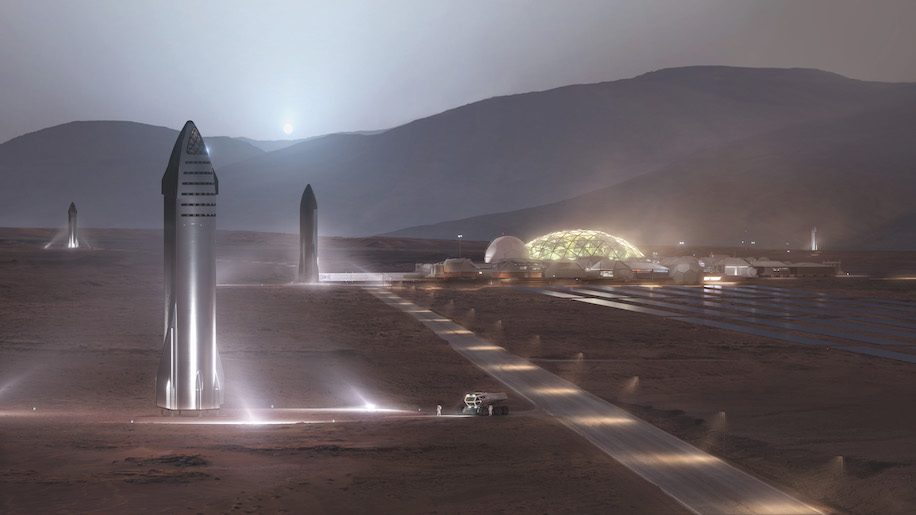
Have you mastered travelling on Earth? Well soon you’ll be able to leave the stratosphere, with the launch of commercial voyages to space and Earth orbiting hotels. Here, we take a look at the proposed future of the galaxy.
Interstellar travel
UBS recently reported that the space industry will double its worth to US$805 billion by 2030. While travel into space has been possible for many years, it’s largely been reserved for astronauts and discovery missions, with fewer than 600 people making the trip. This is all about to change, with various projects in the pipeline by the following aerospace companies.
Virgin Galactic
Virgin Galactic, a subsidiary of Sir Richard Branson’s Virgin Group, is set to market its £200,000 spaceflights from its base at New Mexico’s Spaceport America within the year, with Branson himself taking part.
Last year, it became the world’s first publicly listed human spaceflight company, with a mission to “democratise space” by operating a regular schedule of spaceflights for private individuals.
Sister organisation The Spaceship Company has developed the literal-named SpaceShipTwo, a reusable winged spacecraft powered by a hybrid rocket motor and carried to an altitude of 50,000 feet by WhiteKnightTwo – a four-engine dual-fuselage jet aircraft. SpaceShipTwo will be able to carry eight people (including two pilots) into space.
The company aims to eventually operate several vehicles from multiple locations. This goal will be made easier by the recent strategic partnership with Boeing, whose HorizonX Ventures organisation will invest $20 million in Virgin Galactic to “broaden commercial space access and transform global travel technologies”.

SpaceX
Elon Musk’s company is primarily contracted by NASA to carry astronauts to the International Space Station, but it has space tourism on its mind too.
Plans are in motion for the Starship spacecraft and Super Heavy rocket to fly the company’s first private passenger – Japanese billionaire Yusaku Maezawa – around the Moon in 2023, though the rocket has not yet been built.
The company is currently working on a next generation of fully reusable launch vehicles capable of carrying humans to Mars and other parts of the solar system. While SpaceX’s current contracts are for commercial satellite launches and US government missions, Musk’s “ultimate goal” is “enabling people to live on other planets”.
SpaceX is also looking at carrying out point-to-point flights on rockets, predicting that the 100-passenger Starship could fly from New York to Shanghai within 39 minutes rather than 15 hours.

Blue Origin
Jeff Bezos’ aerospace company, is “committed to building a road to space so our children can build the future”, keen to use space’s resources and energy to preserve Earth.
New Shepard, a reusable suborbital rocket system, will be able to carry six people on an 11-minute flight to space. Windows make up a third of the capsule, allowing for spectacular views during the journey.
New Glenn, a single configuration heavy-lift launch vehicle, will also carry people to Earth’s orbit in the future, with tickets estimated to cost approximately $200,000.
Space hotels
Hotels, too, are set to open in the next few years to accommodate travellers. With a growth in such facilities, businesses might even flock here permanently in the future.
Bigelow Aerospace
Bigelow Aerospace, created by founder of hotel chain Budget Suites of America, regularly partners with NASA to build space facilities. It’s now looking to the hospitality industry, building two stations called B330s which will combine to create a US$2.3 billion space hotel in 2021. This will initially be reserved for scientific research stays, private enterprise and government use but will then open up to tourists.
The Gateway Foundation
The Gateway Foundation’s Von Braun Rotating Space Station plans to launch hotel operations in 2025 and eventually house 450 people in villas, hotels and government-owned modules for research – for an eight-figure sum, of course.
The station will produce varying levels of artificial gravity by adjusting the rate of rotation – guests will get the best of both worlds, able to experience weightlessness and play low-gravity basketball but also have their feet on solid ground when eating at the restaurants on board or working out at the gym.
By 2030, the Von Braun Rotating Space Station expects to have 500 people living in orbit and 200 tourists per week, totally over 10,000 people annually. The Gateway Foundation isn’t stopping there – the agenda for post-2030 is to build stations which will house over 1,400 people.

Orion Span
This start-up aerospace company is also set to join the era of commercial space with the modular Aurora Station 230 miles above Earth. The station will have a spacious interior, large observation windows, personal sleeping quarters and activities on-board – these include growing food while in orbit and the opportunity to experience zero gravity.
This isn’t any average hotel though, and guests will be required to work together to operate the station. Are you up to the task? The luxury hotel will launch 12-day trips starting at US$9.5 million per person in 2022 and is now accepting deposits, so get saving.

Interstellar Lab
While not strictly in space, Interstellar Lab has designed a closed-loop space-inspired village (or Experimental Bioregenerative Station, to give it its technical name) of biomes with Mars-like conditions in the Mojave desert.
These villages are “designed as hospitality and science centres for astronaut training, scientific research and agriculture”, with the aim of preparing humanity for the future of living on Earth and beyond.
The stations will have facilities for water recycling, food production, and waste management, with research and testing on-site to build life support technologies for space settlement on Mars and the Moon.
Construction is slated to begin in 2021 and the village will eventually open to the public for half of the year, with overnight stays costing a pricy US$3,000-6,000 per week – the remaining months will be reserved for professionals.













